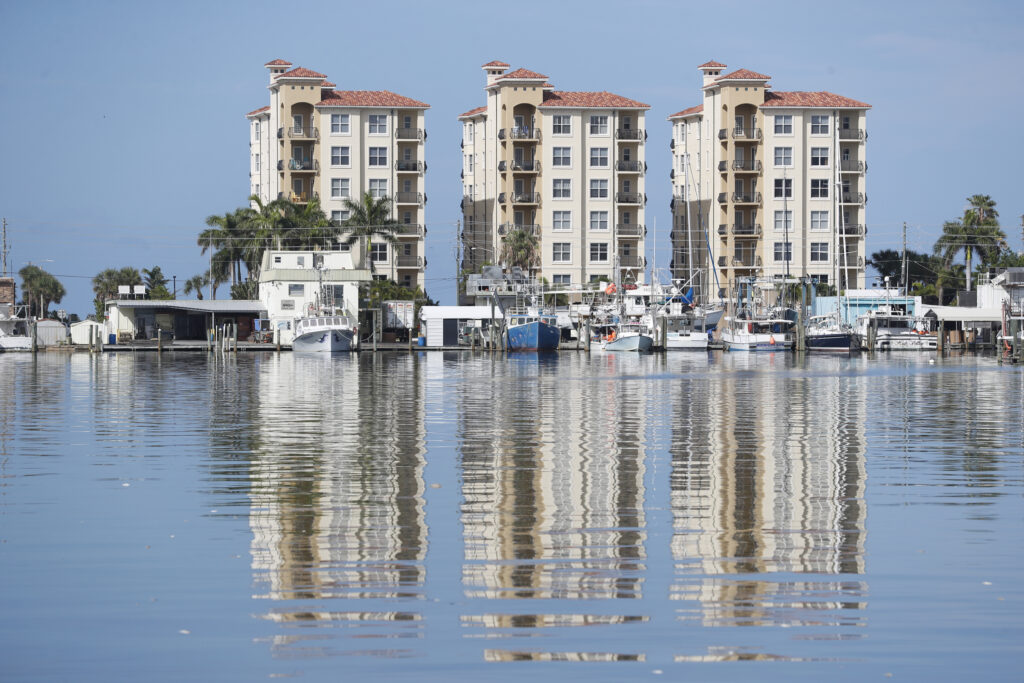Condo associations failing to comply with Florida’s new building-safety legislation could be denied coverage by the state’s insurer of last resort, Citizens, under a bill proposed by Miami State Representative Vicki Lopez.
Newsweek contacted Lopez and Citizens for comment by email on Tuesday morning.
Why It Matters
The new laws, passed after the tragic collapse of Champlain Towers South in Surfside on June 24, 2021, require condo associations to conduct regular inspections on aging buildings and have the funds necessary to conduct eventual repair and maintenance work.
What To Know
The new building-safety legislation has already raised concerns among experts and lawmakers over the impact it could have on the South Florida condo market, where listings had exploded in the months before the laws came into effect. Condo owners who can’t afford rising fees are putting their units on the market, where interest for such properties has dwindled.
At the same time, Florida is only now recovering from a property insurance crisis that saw the withdrawal of major insurers from the state, while others cut coverage in the most disaster-prone areas.
Barring Citizens from offering property insurance to condos that do not comply with the new building-safety legislation would boost efforts to avoid tragedies like the one in Surfside, but could also further jeopardize the financial situation of owners who are already struggling.
State-backed Citizens offers property insurance to all Florida homeowners who cannot find it on the private market. But under Lopez’s proposal, HB 913, the insurer of last resort would be prohibited from issuing or renewing coverage to condo owners and associations that do not comply with the new legislation.
Under the new laws, most condo buildings of three stories and higher have to undergo a building-safety inspection and complete a study designed to insure that associations are reserving enough funds to conduct necessary maintenance and repairs by December 31, 2024.
However, the Florida Department of Business and Professional Regulation told House lawmakers last week that a majority of the more than 11,270 condo associations in the state required to get the inspections did not follow through.
At the moment, there are no criminal penalties for condo associations failing to comply with the laws—likely why Lopez wants to make sure they are motivated to undergo inspections and conduct the study by other means.
According to a post she published on social media, the Republican lawmaker believes her bill “addresses the need for modernized, efficient, and inclusive condo management, prioritizing safety and financial sustainability for Florida’s communities.” Lopez said that the bill “ensures condo owners have a voice, while safeguarding their homes and investments.”
The bill requires electronic voting, “allowing condo owners to participate more easily in decisions [such as taking loans or levying special assessment], particularly when requested by a majority,” Lopez wrote in a post on social media. “It also streamlines the condo termination process, emphasizing public safety and fairness.”
What People Are Saying
State Senator Ileana Garcia, another Miami Republican, told The Miami Herald that the bill proposed by Lopez “threatens to significantly displace thousands of condominium owners in Florida, all in an effort to pave the way for private companies to enter the market.”
The lawmaker said the bill “fails to offer a feasible way for associations to fulfill these obligations. As a result, many Floridians could lose their insurance, compelling associations to implement steep special assessments that will hit seniors, retirees, and low-income residents the hardest.”
What’s Next
Should Lopez’s proposal be approved, the bill would have significant consequences on the South Florida condo market, where most of the Sunshine State’s aging condos are located.
At the moment, more than half of the 18,468 condos insured by Citizens are in Miami-Dade, Broward, and Palm Beach Counties, The Miami Herald reported. It is not clear how many of these buildings’ associations have failed to complete the study required by December 31, 2024, under the new regulations.
Read the full article here
